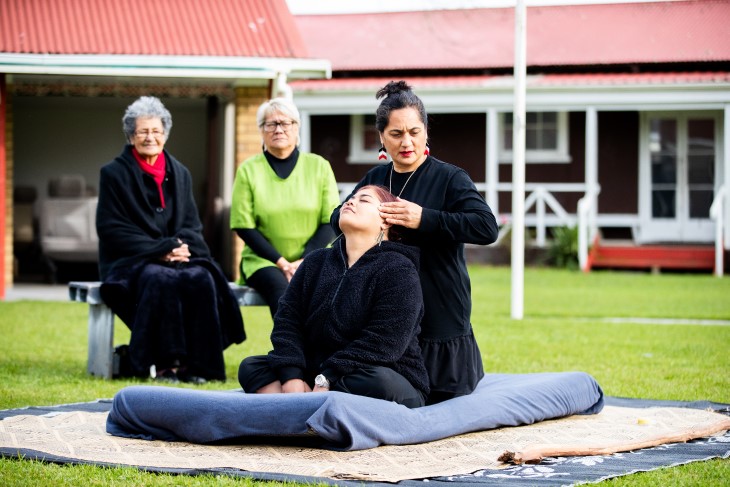Rongoā Māori practitioner hopes traditional healing system becomes mainstream Ke te pīrangi tētahi tohunga rongoā Māori ki te kite i ngā mahi rongoā i te ao hauora whānui
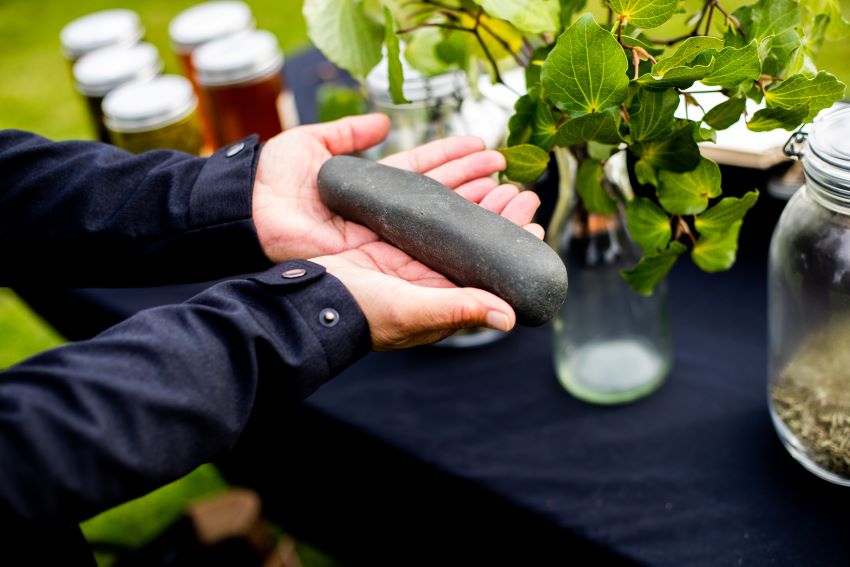
Ruatau Perez is a rongoā Māori practitioner in Canterbury. While ACC offers the traditional healing system as a treatment option, Perez wants to see it become a more mainstream option among New Zealanders.
For Canterbury-based health practitioner Ruatau Perez, the rongoā healing system has been in the family for generations.
The traditional Māori practice will likely be a new concept to many, but Ruatau believes the proven method can find a place in the mainstream health system alongside more conventional Western medicine.
Ruatau (from Ngāi Tūhoe and Ngāpuhi iwi), opened the Māori healing clinic Te Maurea with partner Hannah Livingston in Ōtautahi (Christchurch) earlier this year.
He is one of a growing number of rongoā Māori practitioners active in New Zealand, and he says the principle behind the indigenous health practice is “the return to the natural state of being”.
“When you are out of alignment or out of balance – whether it’s mental, psychological, physical, or spiritual – it’s normally an indication, or a tohu (sign), that there is something deeper going on than the symptoms that are presenting.”
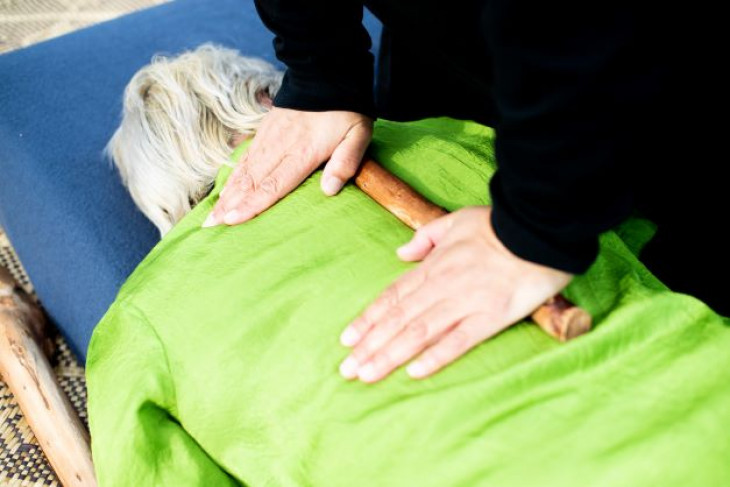
Growing with rongoā
Ruatau was born and raised in Wellington, but spent many years in Auckland, where he trained for 10 years under renowned rongoā practitioner Papa Hohepa Delamere (or “Papa Joe”).
He says rongoā is the remedy used for the process of restoration, whether that be through time in nature, music, meditation, or mirimiri (a form of healing bodywork used to manipulate soft tissue).
“We sometimes use acupressure and acupuncture points to relieve and release trapped or blocked energies that may be causing pain, diseases, or illness.”
Plant medicine, such as kawakawa, can also be used to assist the restoration process, he says. “What you can’t treat on the table, you may look to the plant medicine to help with.”
Ruatau says he was raised on the rongoā system from when he was a young boy, with his grandmother having practised it. He says the system works on all levels – not just the physical level.
He has practised the method himself for more than 20 years, and says “Papa Joe”, who he met in his early twenties, “took everything that my nan taught me to a much deeper level”.
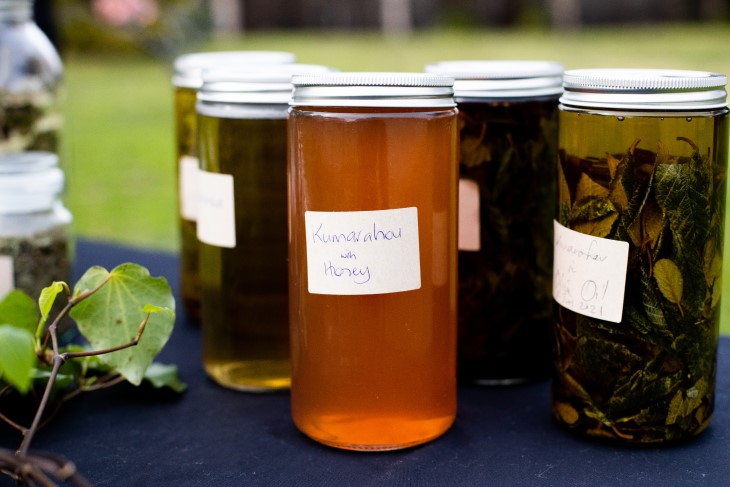
Making space for change
Rongoā Māori is available through ACC, with Ruatau one of a network of ACC-registered rongoā practitioners from Kaitaia to Invercargill. As at the end of March 2022, ACC had approved rongoā Māori in almost 2000 claims, and funded more than 12,600 sessions nationwide.
Ruatau says everyone should “at least try” the rongoā system to see if it works for them. Healing timeframes are different for everybody, he says.
“It really depends on the individual and what they need. If it’s genetic – if it’s stuff that’s been passed down through the DNA – then that might take a little bit of unravelling.
“But if it’s a sports injury or anything along those lines, then it might not take so long. It all depends on what the catalyst is that’s causing the injury or dysfunction.”
Ruatau says the ACC support is “a big step for our indigenous practices to work collaboratively with conventional health systems”. “There’s real potential for having an active traditional practice with modern medicine, not just for Māori people, but for everybody.”
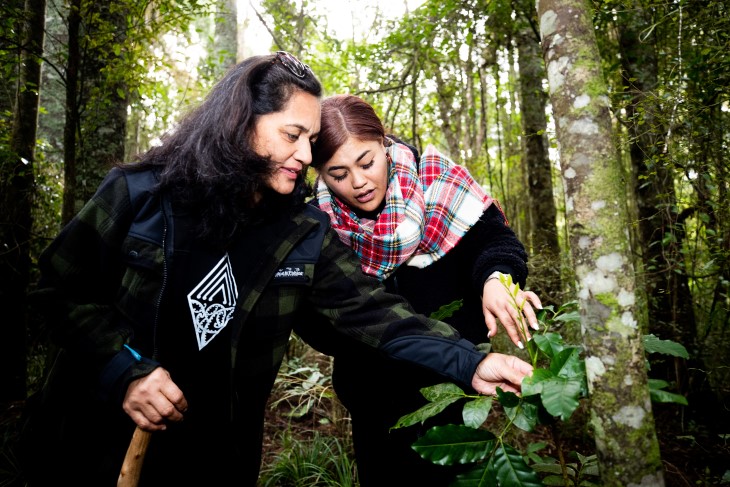
ACC Tumu Pae Ora (Chief Māori and Equity Officer) Michelle Murray says the rongoā Māori service is a programme by Māori, with Māori, for Māori and available to people of all ethnicities.
The service incorporates a holistic, kaupapa Māori approach to wellbeing that includes ā-tinana (physical), ā-wairua (spiritual), ā-hinengaro (mental and emotional), ā-whānau (family and social).
ACC funds the range of traditional Māori healing techniques, guided by the Waitangi Tribunal’s definition of rongoā Māori, to support people’s return to independence after injury.
“We have enabled access to rongoā Māori services to improve equity of choice, access, experience, and outcomes for Māori,” Murray says.
“We recognise we need to offer a choice of support services that reflect tikanga Māori and te ao Māori to uphold our Te Tiriti o Waitangi responsibilities.”
Murray says ACC data shows Māori are more likely to sustain a serious, life-changing injury, but less likely to access ACC services.
“We want to bring more Māori to ACC to support better health outcomes. Enabling tikanga-aligned services is one way we can do that. It’s positive to see that two thirds of those using our rongoā Māori service are Māori.”
ACC data shows that 88 percent of clients who received rongoā care in the last calendar year no longer need ongoing support from ACC. Of the clients who have used the service, only 0.8 percent have lodged a subsequent claim (for the same injury site).
ACC and rongoā Māori
- Since June 2020, rongoā Māori has been offered as a service by ACC.
- Our data shows that Māori are more likely to sustain a serious, life-changing injury but are less likely to access ACC services.
- The data tells us Māori are 25% less likely to make a claim with us than non-Māori.
- As at the end of March 2022, we had approved rongoā Māori for 1,985 claims and funded more than 12,600 sessions.
- One in four of those clients hadn’t previously received other forms of ACC care or treatment before benefitting from rongoā.
- Rongoā Māori is available to clients on request and can be used as standalone care or in conjunction with other services or treatment.
- We currently have 63 fully registered ACC rongoā Māori practitioners from Kaitaia to Invercargill.
- A further 47 practitioners are in the process of becoming registered.
- There is one fully-registered practitioner in the Waitaha Canterbury region, with a further three in the process of becoming registered.




